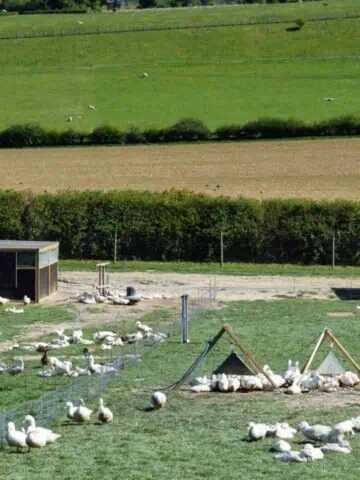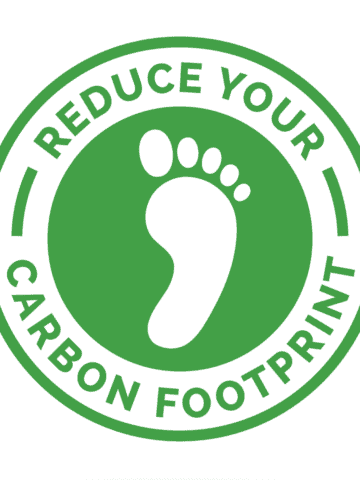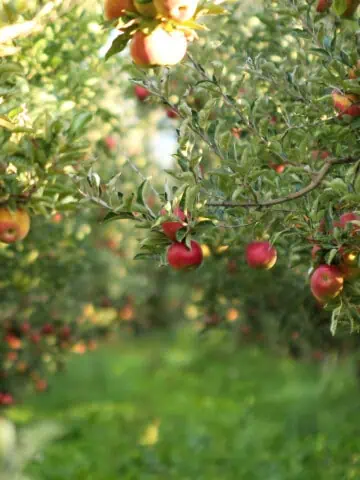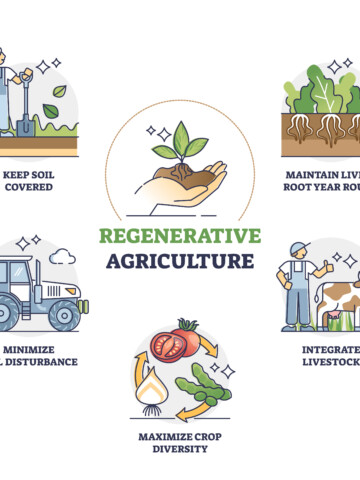We have gotten accustomed to the many "diet" labels - Vegan, Vegetarian, Plant-Based, Pescatarian, Gluten-free, and Paleo, to name a few. And for some like myself who eat a primarily vegetarian diet but are flexible to eat outside of those boundaries under certain circumstances, we are considered Flexitarian.

For almost 20 years, it fits my personality to be less strict and rigid when cooking for my extended family and friends or dining out on social occasions. People outside of my culinary tutelage assumed my dietary focus was to eat organic plant-based food. But, my food decisions went far beyond eating organics and being a Flexitarian. I had chosen to live sustainably and eat the Eco-Flexitarian Way early on!
I share this because being a flexitarian has come with little acknowledgment like other diets because it is neither vegan nor vegetarian - and some say, even lacks real commitment. But if you are a "foodie" like me, getting little or no judgment from others brings freedom for individual flexibility. If anything, it has always rewarded me with a bit more ease from others for not being so rigid about my primarily plant-based diet since I am a Vegan Chef. As a Flexitarian, it also took a lot of stress out of dining at a friend's home as a no-fuss guest!
But now, with restaurants and society evolving towards plant-based diets, it has become much easier to stand by my pickier, more "mindful" eating habits without awkwardness or ridicule. And if anything, I can more openly share my stance to choose my ingredients the Eco-Flexitarian Way!
Jump to:
Why is there a need for change to an Eco-Flexitarian Diet?
We've heard that to be healthy, we need to eat more fruits and vegetables. With climate change and its ripple effects looming over us, eating less meat is the sustainable choice for a healthy planet. As we try to incorporate more environmentally conscious ways of living, an Eco-Flexitarian Diet emphasizes being eco-conscious in all food sources. An Eco-Flexitarian will choose food based on global factors, not just the individual health benefit from the food.
So why the need for change? Our current food systems are unsustainable. The UN projects that by 2050, the global population will rise from 7.8 billion to 9.7 billion. But the demands we are placing on the planet to feed ourselves have already slammed against the limits of the earth's resources. Soil fertility is declining in the industrialized world, thanks partly to agriculture, practices like overgrazing, pesticide and fertilizer use, and erosion.
We’re flailing as a species to keep the planet’s temperature from rising 2 degrees Celsius. This tipping point would cause sea levels to rise 4 inches and create a worldwide crisis as people are forced to flee flooded lands or are too hot and arid to productively farm. At the same time, demand for meat is projected to increase by 88% between 2010 - 2050, and there’s no way to supply it. Half of the world's habitable land is already devoted to agriculture - and 77% is used for livestock and feed.
How does eating meat affect the environment?
Meat from ruminants (beef, sheep, and goat) is by far the most resource-intensive food, a 2019 WRI report on creating a sustainable food future concluded. “It requires over 20 times more land and generates over 20 times more greenhouse gas emissions than pulses (like beans and peas) per gram of protein. The Food and Agriculture Organization of the United Nations estimates that around 9% of human-caused greenhouse gas emissions worldwide come from producing meat & dairy, some from growing animal feed, and some in the form of methane - the belches and farts from cattle. In the US, the EPA estimates livestock represents 4% of the total US greenhouse gas emissions, a little less than the world's %.
Beef requires over 20 times more land to produce than pulses like chickpeas or lentils (per kg of protein).
WRI, Creating a Sustainable Food Future, July 2019

The average American eats about 68 lbs of beef — roughly half is as a burger.
Simply reducing meat intake will have a positive effect on the environment. But choosing meat from Regenerative Farms, which practice rotational grazing, is the Eco-Flexitarian solution for occasionally eating meat.
Regenerative Agriculture is an additional solution - cattle grazing on land managed through rotational grazing produced a carbo sink = 6.5 kg of CO2 per 1 kg beef. Conventional farming emits 33kg of CO2 per 1 kg beef. Compare to a plant-based Impossible Burger which emitted 3.5 kg of CO2.
Quantis study
Regenerative Agriculture serves a purpose in our ecosystem and should be supported. Tech companies are looking to develop ways to measure and pay the farmer for sequestering carbon in their soils. This will incentivize ranchers to switch to more sustainable practices that will be a win-win for everyone. Want to read more about Regenerative Farming? Read our article on it here.
Will changing my diet make a difference in climate change?
Reducing the amount of beef we eat will make a tremendous difference. A 2018 journal, Science - found that a mostly plant-based diet would reduce the land required to produce food in an area as big as Africa and lower the amount of GHG enough to offset the total amount produced in the US annually - 6.6 billion metric tons.
Can you still eat fish and be an Eco-Flexitarian?
You may think that fish is a more sustainable choice than land animals, but the fish in our oceans are also in trouble. We may even be past the point where fish can be sustainably harvested. Ocean pollution has caused many fish and ocean plant life to die off, and we have a long way to go to recover from harmful practices. The Monterey Bay Aquarium Seafood Watch is available online or as an app to guide you to better choices when dining out or determining which fish to purchase.

Like choosing your better meat sources, you can also be mindful about the fish you eat. The Mindful Fork shares more insight on how to choose seafood more wisely for your health and that of the planet. Check out our Resource Page for tips on choosing seafood.
What is Eating the Eco-Flexitarian Way?
An Eco-Flexitarian will ask these questions when choosing food:
- How is this ingredient sourced - is it sustainable? Fairtrade?
- Is the produce local, organic, or seasonal?
- Are the animals humanely treated and raised on a regenerative farm?
- Are fish farmed sustainably? If wild, it must not be overfished/inhumanely treated.
- Are the products packaged with biodegradable or recyclable materials?
- Is the company I'm supporting with my purchase respectable to the sustainable goals during production, packaging, and shipping?
- What is the carbon footprint of what I'm eating? Does it balance out with my daily carbon footprint?
- Am I being mindful of zero-waste with my choices?
An Eco-Flexitarian will eat more plants, support small farms, shop at farmers' markets, avoid industrial meat, select sustainably raised fish, waste less food, support eco-conscious food products, increase your food budget, and cook from scratch whenever possible.
The Mindful Fork's Mission is to share recipes and information so you can make these decisions for yourself and feel good about them at the end of the day. None of us want to be told what to do, but we all have to accept that we play a part in what lies ahead for our planet. Getting empowered with the knowledge to do better today is incredible, so why not eat the Eco-Flexitarian Way!





Leave a Reply